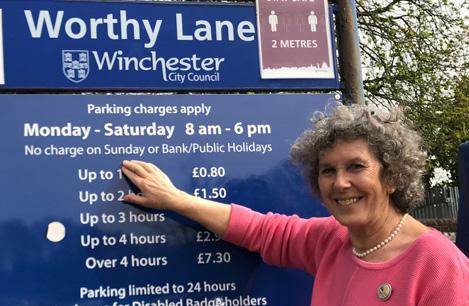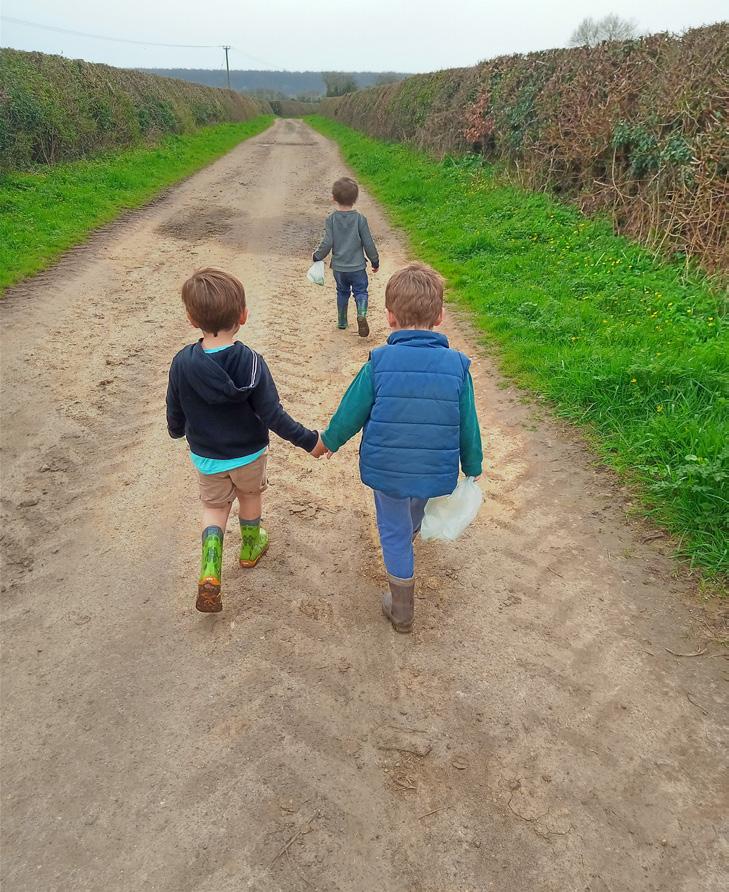
2 minute read
Confessions Of A Food Waste Campaigner
from The Dever May 2021
by TheDever
Sam Watts, Chair of WinACC’s Food Action Group
Reflecting on a week long campaign as part of the inaugural #FoodWasteActionWeek at the beginning of March, I am amazed at how easy it should be to reduce food waste, especially in the home. It sounds simple enough – measure portions, freeze leftovers/batch cook and the most obvious is to plan your meals so you only buy what you need. This is the advice that I heartily promoted as part of the Incredible Edible Winchester campaign. So, I am really embarrassed to have to confess that I am the worst when it comes to meal planning, and I rarely take a shopping list when I go shopping.
Advertisement
But does that mean I waste lots of food? No, I don’t. What it does mean, is that for the couple of days before I do my big shop, I simply eat what I have in the fridge and freezer, like a supper meze. Yes, I sometimes have weird combinations or end up eating variations of chilli for 3 days (because I also forgot to freeze it in smaller portions) but that works for me. Meal planning isn’t the only way to reduce food waste.
So, now I’ve made my confession, why am I still so passionate that food waste is taken seriously when it comes to climate change? Food production, when you consider the farming, transport, processing etc, equates to 26% of all CO2 (equivalent) emissions and uses 50% of the world habitable land (source: ourworldindata.org/environmentalimpacts-of-food) yet almost 30% of food produced is not eaten. There are a variety of reasons why this food is not eaten, but I am going to focus on the bit that we can all change; food waste from the home. The average UK family throws away £60 of edible food a month (Source:WRAP–Food-surplus-and-waste-in-the-UK key-facts-Jan-2020.pdf) and on a worldwide scale food waste equates to the same amount of emissions as 3 times that of aviation emissions.
Most of you reading this blog are thinking, well I’m really careful, I don’t throw away that much food. So, I challenge you to really look at what you do throw away. And do you throw it in the black bin, or are you able to compost it? Could some of the things you throw away, actually be eaten? Do you “complEAT”? Do you peel veg, or do you just give it a good wash, and eat the skin? Think of all the time you’d save and all that extra fibre you’d consume if you didn’t peel potatoes, carrots and parsnips, or saved those broccoli stalks for soup. I’d never heard of “complEAT” before the #LoveFoodHateWaste campaign; I just thought I was a time effective cook (aka lazy)
Now I’m on my soapbox, we need to change how we talk about food waste; we need to separate edible food from non-edible food. Non-edible food is those bits that we truly can’t eat, and we should look at effective ways to compost this (maybe for a later blog), but edible food should never be called food waste. If we could reduce edible food waste, the United Nation estimates there would be enough food for 2 million people (source:







